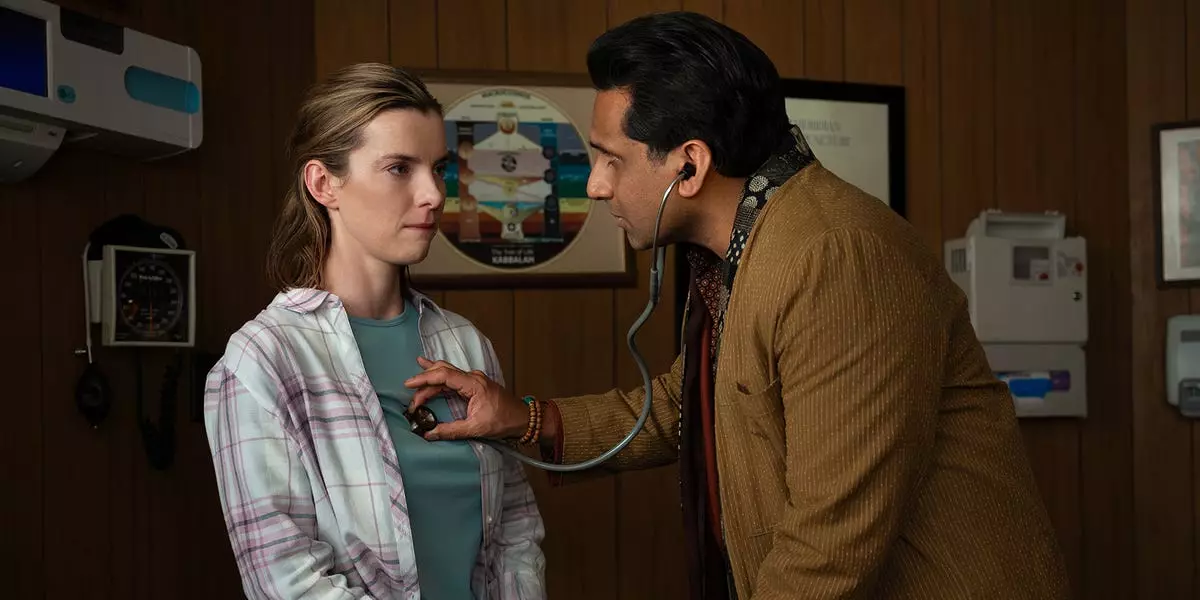Lisa Taddeo’s *Three Women* has become a pivotal exploration of female sexuality and identity through the lives of three distinct women in America. Originally launched as a bestselling nonfiction book, it has now transitioned into a limited series that captivates viewers with its raw authenticity. Taddeo’s ability to intertwine the stories of Lina, Sloane, and Maggie has garnered significant attention, transitioning from the literary world to the visual medium while preserving its core messages. This article delves into the complexities of the show, its characters, and its themes of desire, power, and truth.
At the heart of *Three Women* are the profound narratives of its leading characters. Each woman’s experience reflects a unique facet of women’s lives and the multifaceted nature of their desires. Lina (played by Betty Gilpin) is a housewife trapped in a mundane existence who embarks on an affair that shatters the walls of her complacency. Meanwhile, Sloane (DeWanda Wise) navigates the complications of an open marriage, where the introduction of new romantic interests jeopardizes the equilibrium she has established with her husband, Richard. Lastly, Maggie (Gabrielle Creevy) faces the troubling aftermath of a relationship with her former English teacher, grappling with the psychological and emotional turmoil that ensues from her youthful entanglement.
The series not only stays true to their stories but adds layers through the character of Gia, a journalist portrayed with nuance by Emmy Rossum. Gia’s involvement is instrumental, illustrating how the pursuit of understanding can foster deeper connections. Her journey across America to uncover the truth of women’s desires serves as a narrative vehicle that ties the stories together while allowing viewers to reflect on their implications.
Taddeo herself expressed surprise at how her work resonated with a wide audience. “I always thought it was going to be a quiet book,” she remarked, indicating that the timing of its release coincided with a growing demand for authentic stories about women’s experiences. This timing added urgency to the conversation about female desire, positioning *Three Women* within a cultural moment that increasingly embraces vulnerability and honesty. The depth of these narratives allows for discussions about societal expectations surrounding women and sexuality, paving the way for a broader dialogue about the freedom and restrictions women face in sharing their truths.
The adaptation onto television further extends this dialogue, sparking conversations that are often relegated to hushed tones in society. By portraying these real-life events, the show challenges taboos and encourages an open exploration of topics that are still considered controversial, such as infidelity, consent, and the complexities of romantic relationships.
The series is spearheaded by a talented creative team: showrunner Laura Eason, along with executive producers Kathy Ciric, Emmy Rossum, and Taddeo herself. Together, they have curated a production that is as stirring as it is visually captivating. With a commitment to authenticity, the series not only stands as a faithful retelling of the book but also enriches the narrative landscape with additional characters that deepen our understanding of the protagonist’s journeys.
As the episodes unfold, audiences can witness how mythical ideals of love and sexual liberation confront the raw and often uncomfortable realities of the characters’ lives. Each week, audiences are offered a new episode that meticulously dissects the intricacies of these relationships, ensuring that *Three Women* stays relevant and engaging for viewers.
Since its debut on September 13, the series has invited viewers to experience deep emotional narratives that resonate with many modern identities and relationships. As new episodes are released weekly on Starz, the anticipation builds around not just the next chapter in these women’s lives, but also the deeper questions they raise. How do desire and societal expectations clash? What truths are women willing to confront and share? These inquiries invite viewers to reflect upon their own experiences, making *Three Women* not just a story about three individuals, but a representation of the greater quest for understanding and acceptance in the realm of female sexuality.
Overall, Lisa Taddeo’s *Three Women* is a testament to the power of storytelling, shining a light on the often ignored facets of women’s lives while inviting audiences to listen, reflect, and engage.


Leave a Reply